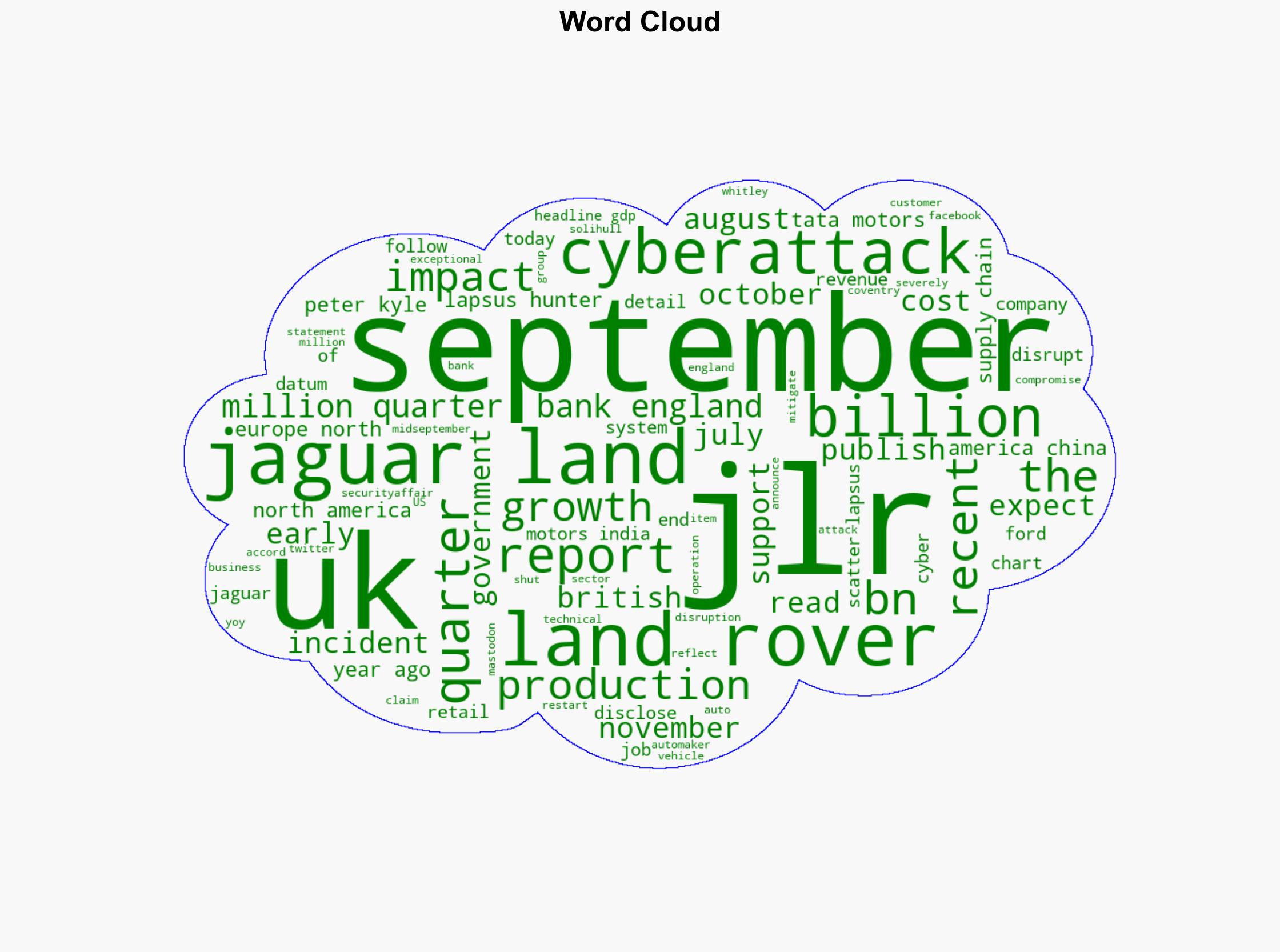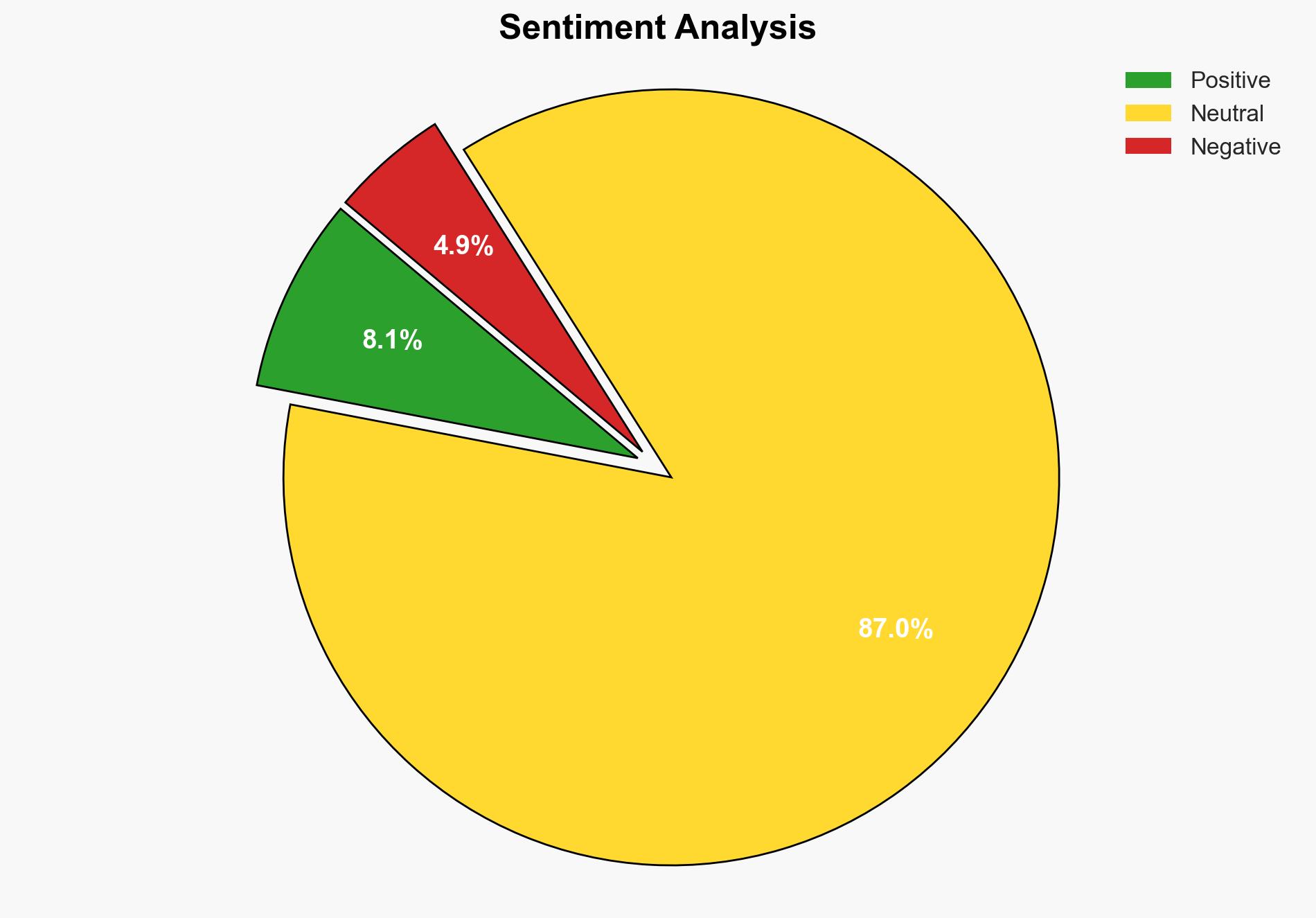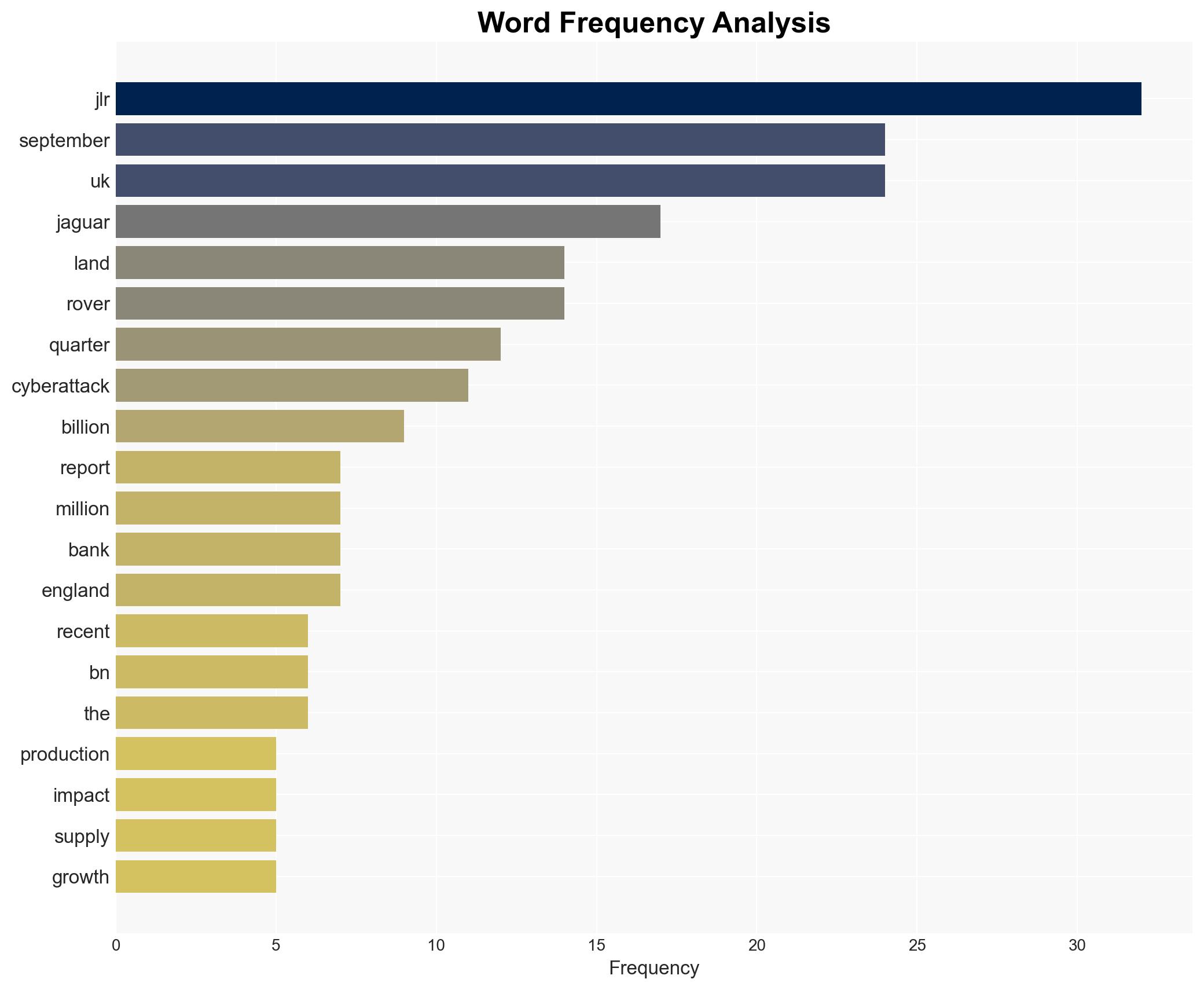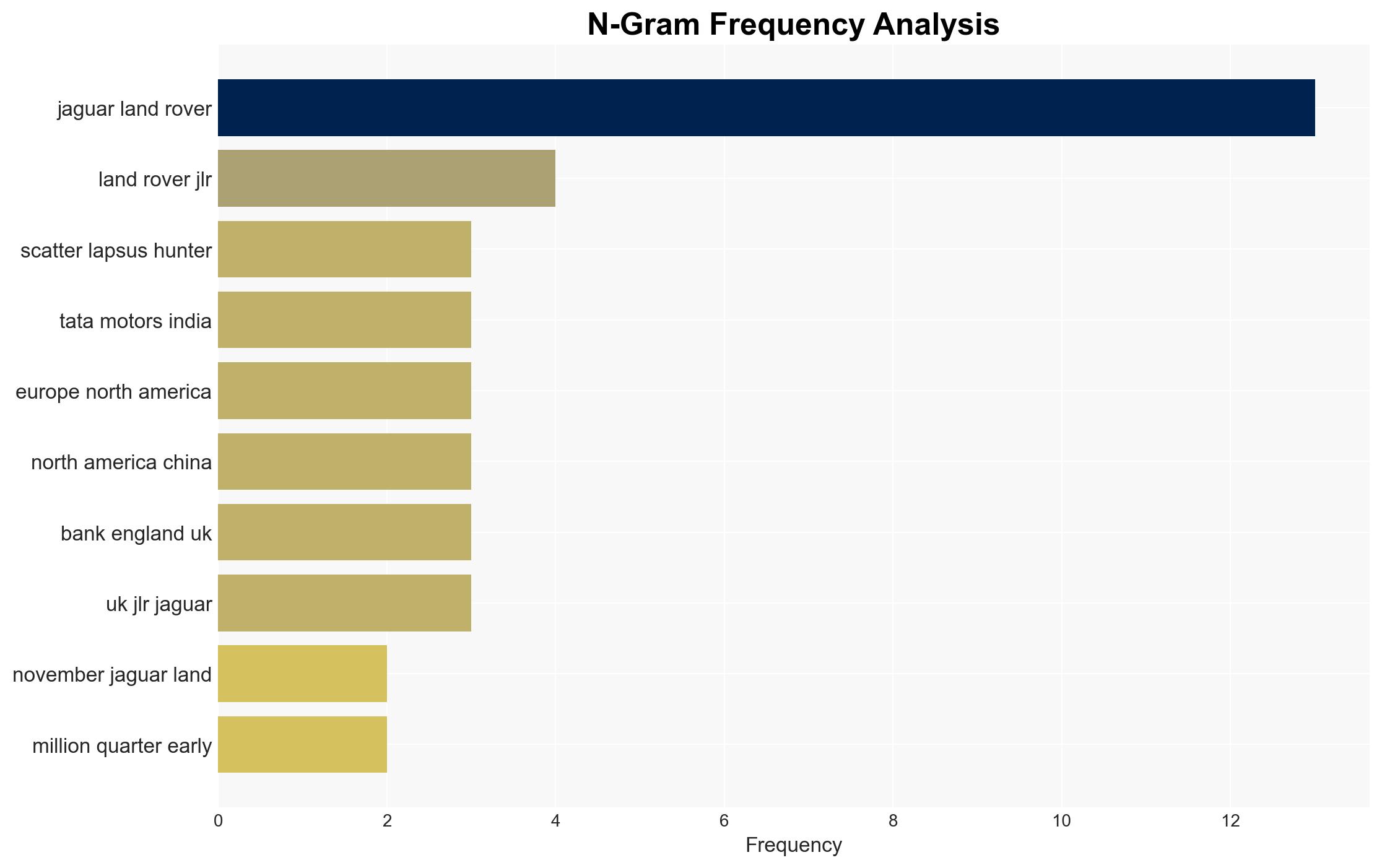Jaguar Land Rover confirms major disruption and 196M cost from September cyberattack – Securityaffairs.com
Published on: 2025-11-17
AI-powered OSINT brief from verified open sources. Automated NLP signal extraction with human verification. See our Methodology and Why WorldWideWatchers.
Intelligence Report: Jaguar Land Rover Cyberattack Analysis
1. BLUF (Bottom Line Up Front)
The cyberattack on Jaguar Land Rover (JLR) in September 2025, attributed to the group Scattered Lapsus$, resulted in significant operational disruption and financial loss. The most supported hypothesis is that the attack was financially motivated, targeting JLR’s supply chain and production capabilities. Confidence level: Moderate. Recommended actions include enhancing cybersecurity measures, diversifying supply chain dependencies, and engaging in public-private partnerships to bolster resilience.
2. Competing Hypotheses
Hypothesis 1: The attack was financially motivated, aimed at disrupting JLR’s operations to extract a ransom or cause financial harm.
Hypothesis 2: The attack was state-sponsored, intended to undermine the UK automotive sector’s competitiveness and economic stability.
Assessment: Hypothesis 1 is more likely due to the involvement of Scattered Lapsus$, a group known for financially motivated cyber activities. The lack of evidence pointing to state-sponsored tactics supports this interpretation.
3. Key Assumptions and Red Flags
Assumptions: The attribution to Scattered Lapsus$ is accurate; the financial impact reported by JLR is comprehensive.
Red Flags: Limited technical details about the cyberattack; potential underreporting of the data breach’s scope.
Deception Indicators: Public statements may downplay the attack’s severity to protect market confidence.
4. Implications and Strategic Risks
The cyberattack poses several strategic risks, including:
- Economic Impact: Disruption in production and supply chain could lead to long-term financial instability for JLR and its partners.
- Cybersecurity Threats: Increased vulnerability to future attacks if systemic weaknesses are not addressed.
- Reputational Damage: Loss of consumer trust and market share if data breach details are more severe than disclosed.
- Political Pressure: Potential for increased regulatory scrutiny and government intervention in the automotive sector.
5. Recommendations and Outlook
- Mitigation: Enhance cybersecurity protocols, conduct regular audits, and implement robust incident response plans.
- Opportunity: Leverage government support to strengthen supply chain resilience and invest in cybersecurity infrastructure.
- Best Scenario: JLR recovers swiftly with minimal long-term impact, leveraging improved cybersecurity measures.
- Worst Scenario: Prolonged operational disruptions lead to significant market share loss and financial instability.
- Most-likely Scenario: JLR stabilizes operations within the next quarter, but faces increased cybersecurity costs and regulatory scrutiny.
6. Key Individuals and Entities
Scattered Lapsus$: Cybercriminal group attributed with the attack.
Peter Kyle: UK Business Secretary, involved in government response.
7. Thematic Tags
Cybersecurity, Automotive Industry, Economic Impact, Supply Chain Resilience
Structured Analytic Techniques Applied
- Adversarial Threat Simulation: Model and simulate actions of cyber adversaries to anticipate vulnerabilities and improve resilience.
- Indicators Development: Detect and monitor behavioral or technical anomalies across systems for early threat detection.
- Bayesian Scenario Modeling: Quantify uncertainty and predict cyberattack pathways using probabilistic inference.
Explore more:
Cybersecurity Briefs ·
Daily Summary ·
Support us
·





